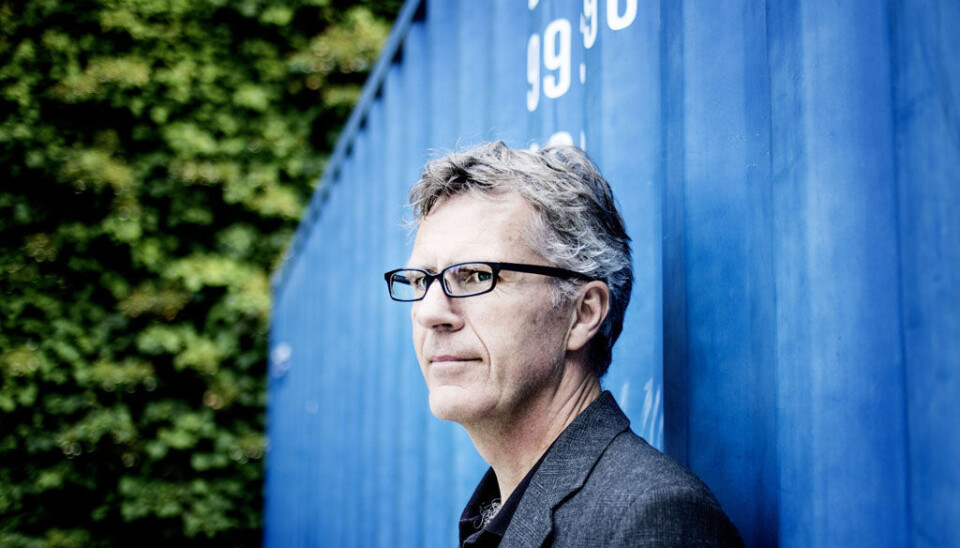
Physical activity should be a standard part of treating depression
Norwegian doctors believe that both physical activity and drugs like ketamine should be included in the country's new national guidelines for how to treat depression. Health authorities are however not sure we need guidelines for treatment of depression anymore.
A number of doctors are now advocating that physical activity be included in new Norwegian national guidelines on depression, as a part of treatment.
Lars Lien, a psychiatrist and community medicine practitioner who heads the Norwegian Psychiatric Association, is one of those advocates.
Physical activity both prevents depression and depressive symptoms and is important as part of overall treatment, he said in an article in Dagensmedisin.no, an online news magazine for Norwegian healthcare professionals.
A number of new, large meta analyses support this approach.
The topic attracted great interest on social media when the Dagens Medisin article was shared, according to Lien. He works at Innlandet Hospital, at the Norwegian National Advisory Unit on Concurrent Substance Abuse and Mental Health Disorders, NKROP.
No side effects, better sleep
Physical activity contributes positively to mental health in many ways. Lien lists some of the reasons why physical activity should be a recommended form of treatment for depression:
Physical activity provides a sense of achievement, unlike a pill. And if you exercise outside, you are exposed to sunlight, which contributes to better sleep.
You can exercise with other people, and exercise is completely without side effects.
“It has many positive effects that we do not take into account today,” Lien said.

Ole Petter Hjelle, known in Norway as the “Exercise Doctor”, agrees. He has published the book "Sterk hjerne med aktiv Kropp” (A strong brain with an active body).
He is also a neuroscientist and lecturer at Inland Norway University of Applied Sciences.
Many of the same mechanisms as antidepressants
There is now so much scientific evidence that physical activity is important in both treating and preventing depression that it is high time to include it in Norway’s guidelines, according to Hjelle.
Physical activity activates many of the same mechanisms as antidepressant treatment, he points out.
It affects the release of certain substances in the brain.
“We believe that training can help restore an imbalance in the chemical substances that are commonly seen in people with depression,” he told Dagens Medisin.
Patients with depression also have an increased risk of other health problems, such as musculoskeletal disorders, cardiovascular diseases and type 2 diabetes.
“Physical activity will also help reduce these physical ailments,” Hjelle said.
Ketamine should also be included
Lien also believes it is important to start treatment early to prevent depression. Professionals also need to assess the severity the depression.
But physical activity should be included as part of treatment, regardless of the severity of the depression and the type of other treatments.
Lien also says that new drugs, such as ketamine, and newer types of electroshock (ECT) treatment should be included in new guidelines. Currently, the standard treatment for depression is either talk therapy or drugs.
Hjelle calls physical activity the forgotten medicine.
Not sure new guidelines will come
Depression is the most widespread mental illness. Nevertheless, Norway currently has no guidelines for how doctors should diagnose or treat depression.
The guidelines have been de-published because they were out of date, Erlend Bø, department director at the Directorate of Health, confirmed to sciencenorway.no.
These guidelines had not been updated with newer forms of treatment and medicines that had been introduced after 2009.
Will it be relevant to include physical activity in the new guidelines for treating depression, we asked?
Bø first answered that it has not yet been decided when the work on new guidelines will start. But then in a subsequent email he stated that:
“It has not been decided whether new guidelines will be drawn up.”
That makes it difficult to say anything about what should go into any possible guidelines, he said to sciencenorway.no.
But why shouldn't there be new guidelines?
“The Norwegian Directorate of Health assesses which areas are in need national standardization. This is usually done when there are issues about which there is great professional disagreement and/or great variations in practice. We have an ongoing assessment of different areas in the mental health field,” Bø said.
"Very problematic"
Lars Lien reacted strongly to the fact that the Directorate is uncertain as to whether there will even be new guidelines.
“It is very problematic if there are no new guidelines for a disease as widespread as depression,” he said to sciencenorway.no.
He believes it is very important to have guidelines to collect information about treatment.
“We will eventually have a lot of evidence from Norway and many other countries about what works and what doesn't,” Lien said.
Concerns about undocumented treatment
Lien fears that without guidelines, practitioners will be free to choose whatever treatment method they like.
“You may risk receiving treatment that has not necessarily been documented to have an effect against depression,” he said.
Lien says it is the job of the Directorate of Health to gather information about research that is shown to have a good effect, and to make this information available in any guidelines.
“It’s important for patients and relatives to know that they are getting the best, most optimal treatment when they come to the Norwegian health service,” he said in an e-mail to sciencenorway.no.
Physical activity well documented as treatment
The Norwegian Directorate of Health confirms that the positive effects of physical activity as a treatment method for mild to moderate forms of depression are well documented.
Some studies show that physical activity can reduce symptoms of depression equally well as drug treatment with antidepressants, the Directorate’s Bø wrote in an email to sciencenorway.no.
The Norwegian Directorate of Health refers to the national recommendations for physical activity for adults and the elderly.
The justification for several of these recommendations is based on the positive effects of physical activity on depression and the positive effects on symptoms.
Translated by: Nancy Bazilchuck
Read the Norwegian version of this article on forskning.no




































